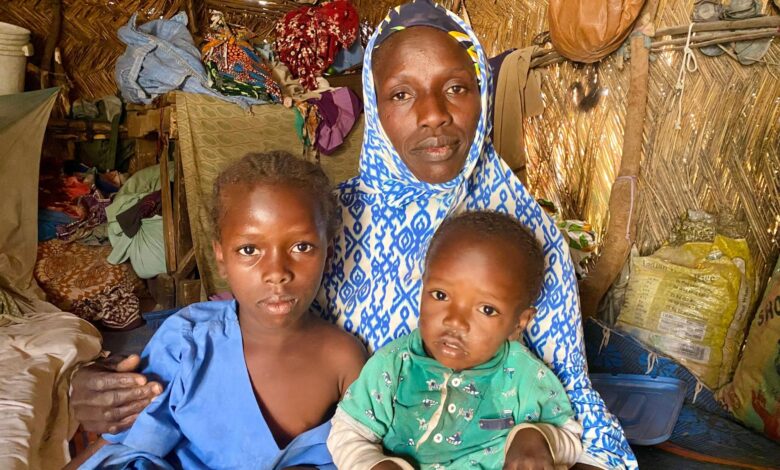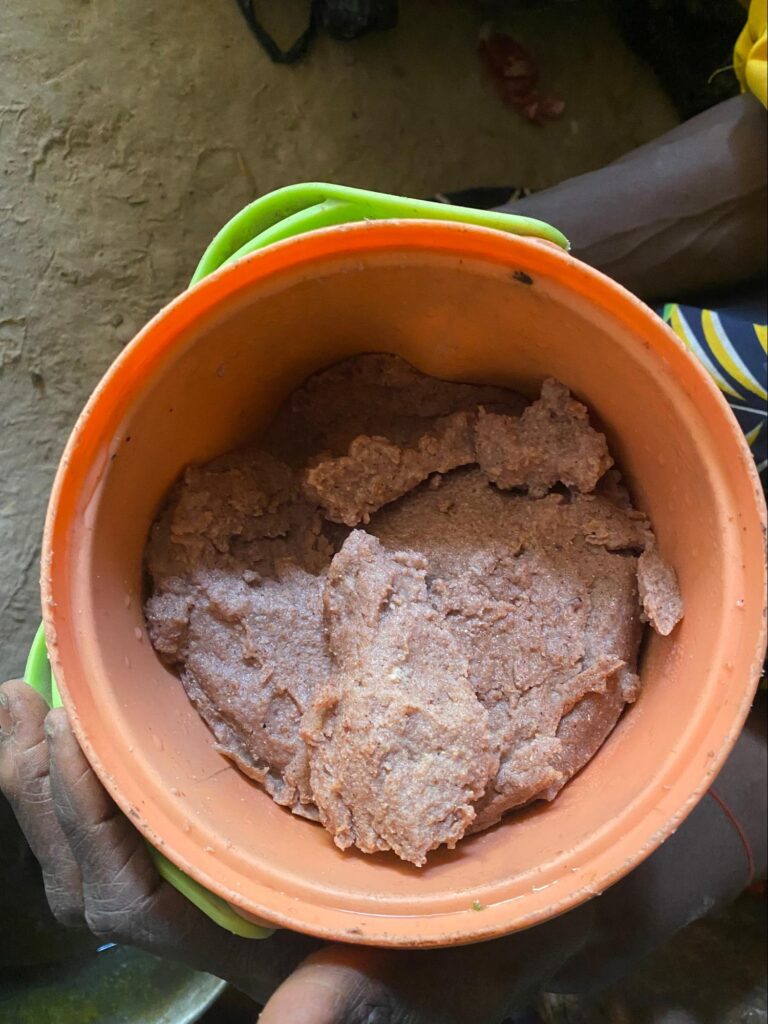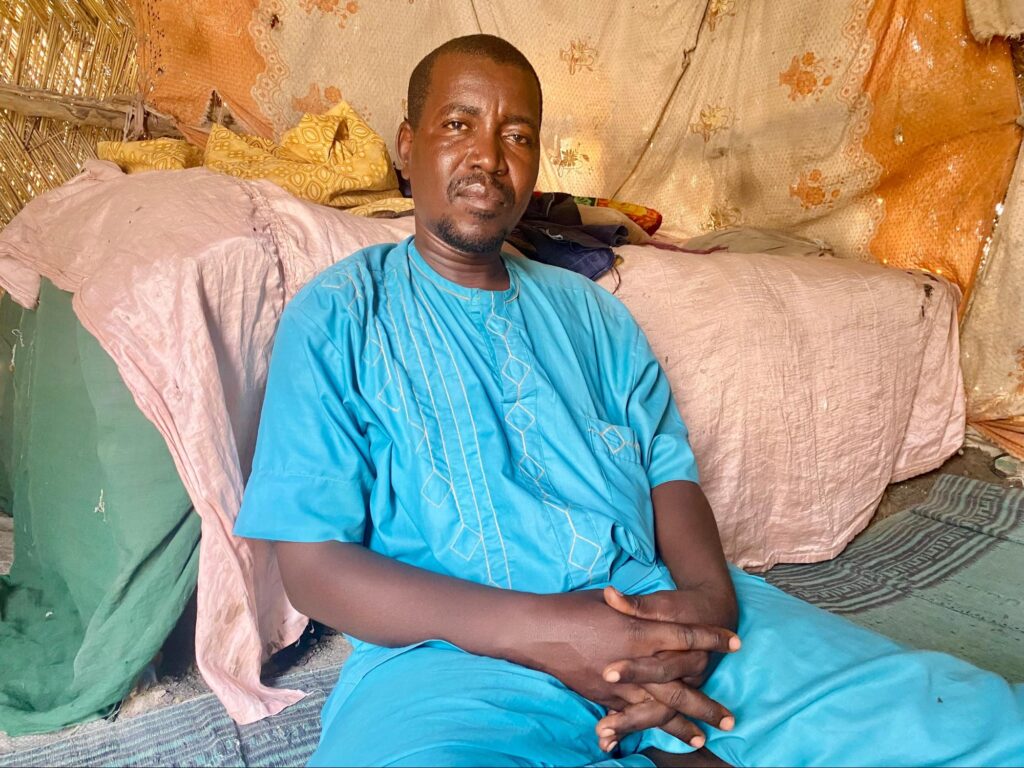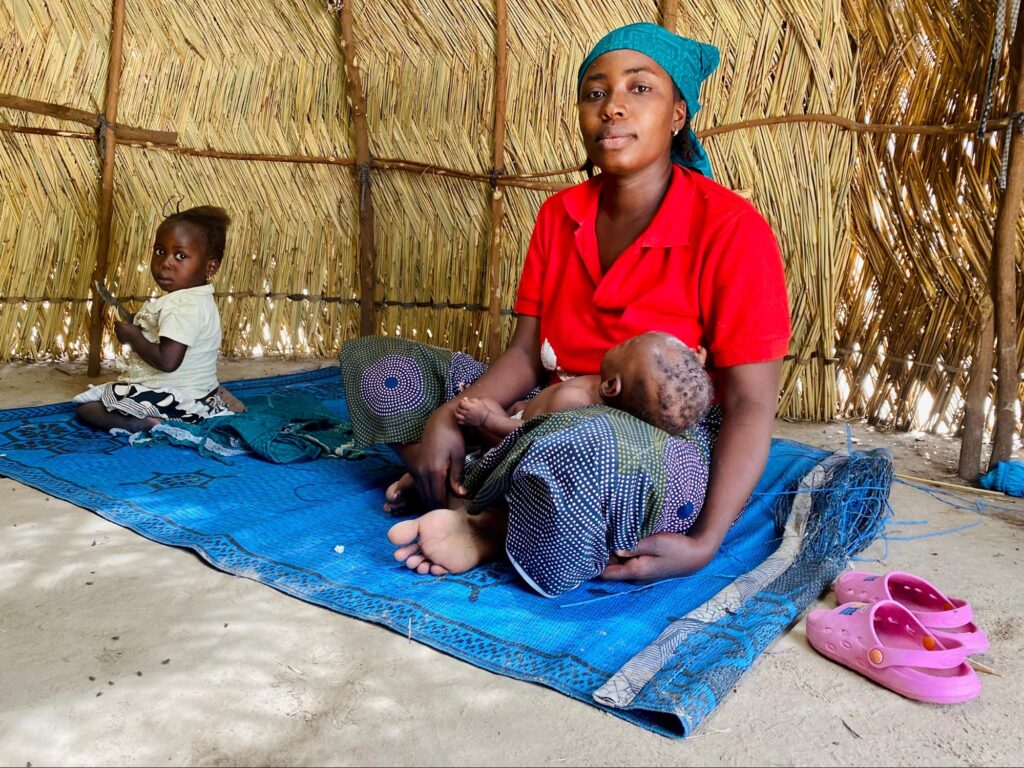Hunger In Northeast Nigeria Means Displaced People Must Eat During Islamic Fast
Food shortages in Internally Displaced People's camps in northeast Nigeria mean hungry people are having to eat and drink what little they can to stave off illness, making the Islamic Ramadan fast impossible to adhere to.

“I couldn’t fast for six days in the month of Ramadan because of hunger,” says Maidah Adam Ali, a mother of nine living in Al-Miskin IDP camp in Maiduguri, the capital city of Borno State, Northeast Nigeria.
“I woke up in the morning on Thursday, March 23 [first day of the month of Ramadan] with the intention of fasting but drowsiness and an excruciating headache struck me later before noon.”
Maidah fainted and lost consciousness under the scorching sun that heated their tent at the camp.
Her children rushed to find her husband, who was somewhere in the camp and informed him of her situation. Her husband knew that it was starvation and quickly gave her water. She had not eaten for an entire day before the fast began. So by the time the fast started officially, her body had already weakened from the lack of food.
“He told me that I could not continue the fasting and I should break it before it got critical. He went to a kiosk and got me a sachet of milk and a malt drink on credit,” she said.
“After drinking both, I immediately felt relief. The headache and dizziness vanished,” she said.
According to Maidah, since then, she has been on medications. She recovered and resumed fasting six days later.
She and her family were displaced seven years ago by the Boko Haram insurgency in Nigeria. Since then, their lives have taken drastic turns negatively. Things have been further compounded by the ban placed on the Borno state government on humanitarian organisations from providing aid to IDPs. The government said this was done so that people could become less reliant on aid and build resilience.
Explaining the hardship clouding IDPs in such an important religious period, Maidah said, “The fasting period came a week after we had exhausted our last two mudu of guinea corn (approximately 2.6 kilograms). There was nothing left to eat that night to fast the following day.”
The guinea corn had been offered to them by a samaritan in the community as charity.

The Ramadan fast is an extremely important period for Muslims all over the world. It is so sacred that it is regarded as one of the pillars of the religion and is made compulsory except in extreme cases of hardship, such as in Maidah and her family’s case. Because of food insecurity and not knowing when or if they may get food to eat, many Muslim IDPs in Northeast Nigeria have been unable to participate in it.
There has been a shortage of food supply in Maidah’s house since the last time they received humanitarian intervention from an NGO, which was five months ago. According to Maidah, she depends on what the kids bring back home from begging, which is not a lot.
Food availability was a bit better in the early years of her stay in the camp after she fled Kekeno, a community in Kukawa local government area of Borno State. But this was seven years ago.
For her, fasting this year is drinking water to start fasting and drinking pap to break the fast.

Like many other Muslim families, preparations for the month of Ramadan start early, but for Ali Nuhu, the story is different. His wife left him and went to her parents’ home.
It was the only way she could survive the severe hunger that characterises their living conditions in the camp.
“She went home because of the food crisis, and it was a decision we agreed on together,” Ali said.
“The month approached, and there was no assistance. The petty trade I used to do was destroyed by a fire outbreak that gutted Gamboru Market a few days to the fasting month,” he added.
The Gamboru market fire outbreak affected many displaced people as a good number of them set up sheds there to make a living. Over a thousand shops were destroyed in the fire, many of them belonging to IDPs.
“Since the beginning of Ramadan, I have not gotten any money to buy anything to eat. My five children and I have exhausted the little foodstuff that I got for us at the beginning of the month,” he said.
He told HumAngle that he feeds on water and pap every day during the fasting period. The kids roam the city to search for free food.
Ali is from Konduga Local Government Area. When Boko Haram destroyed his village, he fled to Maiduguri and settled at the camp.

“Sometimes you eat, and most times you live without eating anything,” says Aisha Sale from Marte, who fled to Maiduguri eight years ago.
“Hunger will not stop me from serving my God,” she told HumAngle.
HumAngle contacted the management of some of these camps, and they said that the faith of people and hope are what is keeping them.
“The unavailability of what to eat is stopping many people in the camp from fasting, but no one will come and tell you that he is not fasting,” Boyi Dauda, a member of the Shuwari Five IDP Camp, said.
Mallam Yasami, chairman of the Muna Kumbiri IDP camp, said that “We are suffering, and we are praying to get ease because fasting in this kind of situation is affecting everyone. Many in secret are not fasting because there is nothing to eat to start fasting nor anything to break the fast.”
HumAngle found that some NGOs had visited the two camps a few days ago and captured their data – likely for some intervention –, but the people in the camp say this means nothing. They have experienced such a humanitarian visit in the past, but no positive outcome came of it.
Support Our Journalism
There are millions of ordinary people affected by conflict in Africa whose stories are missing in the mainstream media. HumAngle is determined to tell those challenging and under-reported stories, hoping that the people impacted by these conflicts will find the safety and security they deserve.
To ensure that we continue to provide public service coverage, we have a small favour to ask you. We want you to be part of our journalistic endeavour by contributing a token to us.
Your donation will further promote a robust, free, and independent media.
Donate HereStay Closer To The Stories That Matter




